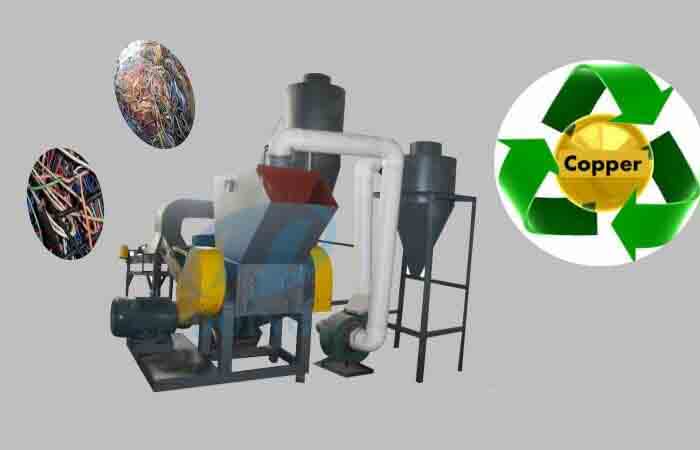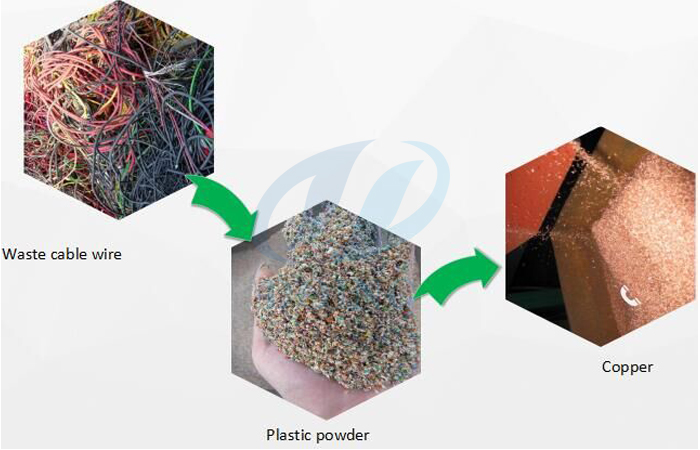Why should we recycle copper by recycling of copper wire?
Industry news / Chat on line / Give me a price / 2016-11-24

Copper cable granulator
Copper recycling has taken place throughout history. With the highest recycling rate of any engineering metal, copper rarely ends up in a landfill since it is too valuable. The copper, no matter how old or new, can be recycled over and over again without any loss in quality. The business of copper recycling is booming, bringing both economic and environmental benefits, which are listed below:
Conservation of Copper Resource. Copper ore is a finite resource. By recycling, we can help to conserve the copper resource.
Energy Saving. Recycling copper requires only 15% of the energy needed for copper extraction. By copper recycling, we can save oil, gas or coal and furthermore, reduce carbon dioxide emission.
Waste Reduction. The landfill sites are running out, so that reducing the amount of waste is an urgent issue. Recycling copper saves the space in the already very full landfills
Saving Cost. Recycling copper is cheaper than to mine and extract new copper, which in turn reduces the cost of copper products, so that producers can count on high margins. While landfill dumping is expensive for waste disposal of any material, recycling can save this cost
Environment-friendly. During mining and refining of copper, toxic dust and gases such as sulphur dioxide are produced and released into the air, having a harmful effect on the environment. Although copper producers are striving to minimize these effects by certain methods, with recycling there are virtually no harmful gases emitted.
Various copper scrap are collected, dismantled and sorted, and then followed by melting, casting and manufacture into new copper products by brass mills, copper mills and refineries. While the highest grade copper is used for electrical cables for its best electrical conductivity, some may contain trace impurities that negatively impact its properties, however, these scrap can be electrolytically refined back and reused for making the cables. Secondary copper can be used to manufacture plumbing tube, roofing sheet and heat exchangers, for which high electrical conductivity is not required and other quality requirements are not so necessary.

Copper




